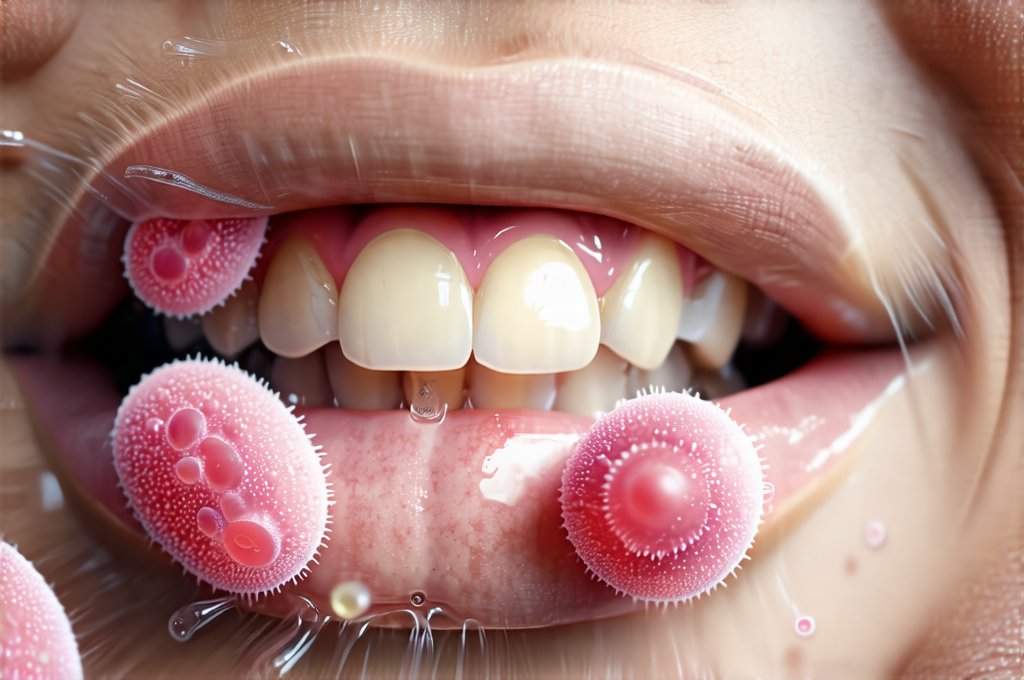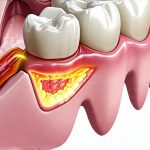The intricate connection between oral health and overall well-being is often underestimated. We typically view dental care as separate from general healthcare, focusing on preventing cavities and maintaining a pleasant smile. However, the mouth serves as a gateway to the rest of the body, and the ecosystem within it—the oral microbiome—plays a surprisingly significant role in systemic health. Poor oral hygiene doesn’t just lead to tooth decay; it creates an environment where harmful bacteria can thrive, potentially disrupting the delicate balance of our gut flora and impacting stomach function, ultimately influencing everything from digestion to immune response.
The mouth is teeming with microorganisms – bacteria, fungi, viruses, archaea – forming a complex community. While many are beneficial or harmless, others can contribute to oral diseases like gingivitis and periodontitis when allowed to proliferate due to inadequate cleaning and care. These harmful bacteria aren’t confined to the mouth; they’re constantly being swallowed. For years, it was assumed these swallowed microbes were largely neutralized by stomach acid. However, increasing evidence suggests a more nuanced picture where specific oral bacteria can survive passage through the stomach and colonize the gut, or alternatively, trigger inflammatory responses that ripple throughout the digestive system even without establishing long-term residence. This continuous influx of oral microbiota, particularly when imbalanced, poses a significant threat to the stability of our gut ecosystem. Understanding how meal timing impacts bacterial rhythms can also be beneficial.
The Oral-Gut Connection: A Two-Way Street
The relationship between the oral and gut microbiomes isn’t one-way; it’s a dynamic interplay. Changes in the mouth directly affect the gut, and vice versa. Poor oral hygiene leads to an overgrowth of pathogenic bacteria in the mouth, increasing the bacterial load swallowed daily. This can shift the composition of the gut microbiome, reducing diversity and promoting the growth of unfavorable species. Conversely, imbalances in the gut—caused by factors like diet, stress, or antibiotic use—can also influence the oral microbiome, creating a vicious cycle where dysbiosis in one location exacerbates problems in the other.
This bidirectional communication is facilitated through several mechanisms. Bacteria can physically travel from the mouth to the gut via swallowing. Furthermore, metabolites produced by oral bacteria – such as volatile sulfur compounds (VSCs) associated with gum disease – can be absorbed into the bloodstream and influence systemic inflammation, impacting gut barrier function. Inflammation is a key link between oral health and gut health, driving many of the adverse effects associated with poor hygiene. The immune system also plays a critical role; responses triggered in the mouth due to bacterial imbalances can spill over into the gut, contributing to chronic low-grade inflammation. Considering how dehydration impacts gut function provides further insight.
The consequences of this disrupted balance extend beyond digestive issues. A compromised gut microbiome is linked to a wide range of health problems, including autoimmune diseases, mental health disorders, and even cardiovascular disease. Understanding this intricate connection highlights the importance of prioritizing both oral and gut health for overall well-being. It’s also important to consider how poor gut health can contribute to brain fog.
Impact on Stomach Function & Digestion
The stomach’s role isn’t simply about acidifying food; it’s a vital component in digestion and immunity. A healthy stomach relies on a balanced microbial environment to function optimally. The constant influx of bacteria from the mouth, particularly pathogenic species associated with gum disease, can disrupt this balance. Some oral bacteria produce enzymes that interfere with normal digestive processes, potentially leading to malabsorption of nutrients. Others may exacerbate existing conditions like gastritis or peptic ulcers.
More significantly, certain oral bacteria are capable of producing acids and toxins that damage the stomach lining over time. Helicobacter pylori, while often associated with contaminated food or water, can also be transmitted orally, exacerbating existing infections or contributing to new ones. Even without H. pylori infection, chronic exposure to oral bacteria can trigger inflammation in the stomach, weakening its protective barrier and increasing susceptibility to damage. Furthermore, alterations in gut microbiome composition induced by swallowed oral bacteria can affect gastric motility – the speed at which food moves through the digestive tract – leading to symptoms like bloating, constipation or diarrhea. Understanding how gut bacteria help process fats, carbs, and proteins for energy is vital here.
The Role of Biofilms & Bacterial Virulence
Biofilms are communities of microorganisms encased in a self-produced matrix that adheres to surfaces. They’re prevalent in the mouth and gut, but biofilms formed by pathogenic oral bacteria are particularly problematic. These biofilms offer protection from antibiotics and immune defenses, making them difficult to eradicate. The virulence factors produced within these biofilms – toxins, enzymes, and inflammatory mediators – contribute significantly to tissue damage and inflammation in both the mouth and the stomach.
- Biofilms can increase resistance to stomach acid, allowing more bacteria to survive passage through the digestive tract.
- Specific bacterial species within oral biofilms produce compounds that disrupt gut barrier integrity, increasing permeability (“leaky gut”).
- The formation of biofilms in the stomach itself can contribute to chronic inflammation and impaired digestion.
Addressing biofilm formation requires a multi-faceted approach including improved oral hygiene practices (brushing, flossing), antimicrobial mouthwashes, and potentially probiotic supplementation to restore microbial balance. It’s also important to be mindful of how overuse of sanitizers impacts gut flora.
Inflammation & Gut Permeability: A Dangerous Cycle
Chronic inflammation is at the heart of many health problems, and it’s heavily influenced by both the oral and gut microbiomes. The constant influx of bacteria from a dysbiotic mouth triggers an immune response in the gut, leading to chronic low-grade inflammation. This inflammation damages the intestinal lining, increasing its permeability – often referred to as “leaky gut.” When the gut barrier is compromised, larger molecules (including bacterial toxins) can leak into the bloodstream, triggering systemic inflammation and potentially contributing to autoimmune reactions.
Gut permeability isn’t a static state; it’s influenced by factors like diet, stress, and medication. Oral bacteria exacerbate this issue by producing compounds that directly damage gut barrier function. Furthermore, inflammatory cytokines released in response to oral bacteria can further weaken the intestinal lining. This creates a dangerous cycle where inflammation drives increased permeability, which allows more bacterial toxins into circulation, leading to even more inflammation.
Dietary Considerations & Probiotic Support
Diet plays a crucial role in both oral and gut health. A diet high in sugar and processed foods promotes the growth of harmful bacteria in the mouth, while lacking essential nutrients needed for immune function. Conversely, a diet rich in fruits, vegetables, and fiber supports a healthy microbiome and reduces inflammation. Specific dietary components like polyphenols (found in berries, tea, and dark chocolate) have been shown to inhibit biofilm formation and modulate gut microbiota composition. We must also consider how modern diets deprive your gut of prebiotics.
Probiotic supplementation can be a valuable tool to restore microbial balance, but it’s important to choose strains specifically targeted for oral and gut health. Some probiotic strains have demonstrated the ability to colonize both the mouth and gut, offering synergistic benefits. Look for probiotics containing species like Lactobacillus reuteri, Streptococcus salivarius K12, and Bifidobacterium infantis. However, it’s important to note that probiotics are not a one-size-fits-all solution; individual responses can vary greatly. Consulting with a healthcare professional is recommended before starting any new supplement regimen. Additionally, understanding hormonal birth control alters gut flora is crucial for some individuals.


















